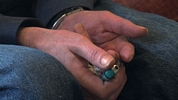A couple of years back, when Rosie O'Donnell was still on a popular morning talk show called The View she shared something about herself that many women would feel too ashamed to admit: Rosie declared that she had a sleep breathing problem called obstructive sleep apnea. She even proudly demonstrated to many thousands of women viewers on how she uses the CPAP (continuous positive airway pressure) mask every night. I'm sure that by doing so she was hoping to raise awareness for more women to get tested for this all-too-common yet frequently undiagnosed condition.
Unfortunately, her frank disclosure may have done little to dispel the myths surrounding sleep apnea. Estimates suggest that 85% of sleep apnea patients go undiagnosed with a higher percentage of that number being women.
Listed below are 5 of the most common myths that get in the way of women being treated effectively for this condition. Discover for yourself what, if any ramifications sleep apnea may have on your health and take measures to prevent this problem from affecting you.
Sleep Apnea Then and Now
Obstructive sleep apnea was first described in the 50s and 60's as a rare condition in very obese, older, snoring men who kept falling asleep during the day. But even now, about 40 years later, every medical lecture I attend about sleep apnea begins with a picture of Joe the fat boy from Dicken'sThe Pickwickian Papers. Although anyone who knows anything about sleep apnea these days knows that this is merely a caricature of real sleep apnea, nothing has been done to dispel these prevailing myths.
It's now known that about a 23% of men and 11% of women in this country have some degree of obstructive sleep apnea. This number gets even higher in older women, especially after menopause. The reason why this is so problematic is that untreated, the sleep apnea patient has a 2 to 3 time increase in risk of cardiovascular complications, such as high blood pressure, heart disease, heart attacks or even strokes. There are also known associations with depression, obesity, sexual dysfunction, and headaches. However, many sleep apnea patients, especially a lot of women aren't being properly diagnosed due to the many myths surrounding this condition.
Where Do These Myths Come From?
Myth Number One: "I'm Not Rosie O'Donnell"
The first myth is that one has to be an older, heavy-set, snoring man to have sleep apnea. While this may be true in this particular population, it can also occur in young thin women. This has been proven in multiple published research studies. But many young women will look at a celebrity like Rosie O'Donnell and think, "I'm not like her. I'm skinny. I can't have sleep apnea". The sad truth is, even many doctors still think that a young thin person can't have obstructive sleep apnea. Therefore, because of these biases, the diagnosis of obstructive sleep apnea is never considered even when you present with many of the common signs and symptoms of sleep apnea. In my practise, there's an even split with about 1/2 of the men and women who are diagnosed with sleep apnea that are overweight, and 1/2 that are relatively thin.
Myth Number Two: "I'm not lazy"
Another misconception many people have is that those who have sleep apnea tend to sleep too much or are just plain lazy. Yet the truth is, many sleep apnea patients, contrary to their drowsy appearance, tend to be high achievers since they must over compensate for their lack of deep restful sleep. Also, apneas or airway stoppages only happen when you're in "deep sleep", so these people, even though they may seem to sleep long hours, aren't really getting the quality restful sleep they required.
Myth Number Three : "I don't snore."
Many people associate obstructive sleep apnea with severe snoring. Again, in the severe sleep apnea patients this is usually the case, but many people with mild to moderate conditions may not snore at all. Remember that snoring, by definition, means that one is still breathing (somewhat). Apnea means total blockage. So,if you are not breathing, you are not snoring. This is the third myth that must be set straight.
Myth Number Four: "I'm a light sleeper"
"I know that I don't have sleep apnea." This is one of the most common statements that I hear from women when I even mention a possibility In fact, studies have shown over and over again that you as a patient, are very poor at predicting whether or not you have obstructive sleep apnea. This is because it only happens while you are sleeping. Of course there are various minor exceptions to the rule such as waking up while one is snoring, but in general, the above statement is true. Research has even shown that bedmates are also poor at predicting sleep apnea. Would you know if your spouse's cholesterol was elevated just by looking at him?
Myth Number Five: "Sleep tests are inaccurate"
The last myth has to do with the actual sleep study itself to determine the degree of sleep apnea you have. Many patients preempt these formalized tests by saying "I won't be able to sleep in a sleep lab." Being in a strange bed with multiple monitors and leads attached to your body is an uncomfortable and annoying experience, but it's rare when I have someone that really could not sleep enough to gather useful data. We don't need an entire night's sleep; we only need about 3-4 hours of continuous or even interrupted sleep. Some even complain that they did not sleep at all. But the brain waves on their sleep study results, by definition, shows that there was significant sleep present. Another frequent scenario I run across is when a patient undergoes a sleep study and the test does not reveal any significant obstructive sleep apnea. But just because the sleep study did not reveal any apneas does not mean that the quality of your sleep is still good. The reason for this is that an "apnea" is defined as a total stoppage of breathing due to obstruction in the throat for 10 seconds or longer. There is a lesser form of an "apnea" where there is still some airflow, but greatly diminished, yet it lasts more than 10 seconds (hypopneas). If the minimum threshold for obstructive sleep apnea is 15 "apneas" every hour. and if you stop breathing 30 times every hour, but if each episode lasts for only 8 seconds, then you will have zero apneas and hypopneas. As confusing as that sounds, in this case, you are told that you don't have sleep apnea, but you still feel lousy when you wake up in the morning. This is a common situation with patients who have upper airway resistance syndrome, which is a preliminary stage before they proceed to having OSA.
As you can see there are no absolutes when it comes to obstructive sleep apnea. After all, the myths and stereotypes are based on a distortion of the truth. Unfortunately, these myths can lead to or aggravate untreated high blood pressure, diabetes, obesity, heart disease, heart attack and stroke. It's my wish that you and others you know will be better educated to dispel these myths to promote better breathing, better sleep, and better health for themselves, their family members and their friends.



